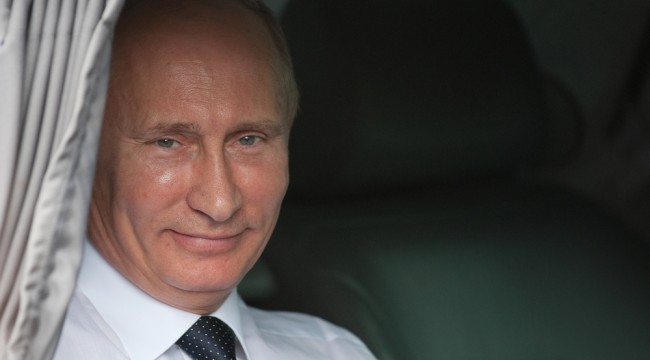Four Hurdles to Trump and Putin Cooperation
The first hurdle will be the Russian assumption that any U.S. efforts to increase bilateral ties will be simply a prelude to yet another Color Revolution or Arab Spring style effort to destabilize Russia.
The book, “The Nature and Content of a New-Generation War,” was written by two military theorists at the Centre for Military-Strategic Studies of the Russian General Staff.
The theorists, Chekinov and Bodganov, purported to describe U.S. strategy as follows:
The aggressive side will be first to use non-military actions and measures as it plans to attack its victim in a new-generation war. With powerful information technologies at its disposal, the aggressor will make an effort to involve all public institutions in the country it intends to attack, primarily the mass media and religious organizations, cultural institutions, non-governmental organizations…
This is represented as the U.S. strategy, but actually offers a fair description of recent Russian actions in Ukraine. In this theory regarding the combined value of soft and hard power, Russia would feel exposed because they could not protect themselves should a future U.S. administration decide to deploy the power inherent in such public and private institutional relations.
The second hurdle is that, in addition to Russian suspicions, governments are more constrained than they generally believe. Dr. George Friedman, Founder and CEO of STRATFOR, observes that countries’ foreign policy options are more shaped by external constraints of geopolitics than any administration would like to acknowledge.
This is the reason why the broad foreign policy of most countries rarely changes despite the arrival of a new administration.
President Putin addressed this recently. In an interview with NBC’s Megyn Kelly, he explained that Russia has limited interest in U.S. domestic politics since, “Presidents come and go, and even the parties in power change, but the main political direction does not change.”
Trump may want to change the relationship between Russia and the U.S., but his power to do so is limited. If geopolitical tensions with China rise, however, that may give Trump more leverage to push his agenda with Russia.
U.S. Domestic Politics
The two challenges we’ve listed so far are the inertia of geopolitics and Russian suspicion. However, the Trump administration also faces a wall of skepticism at home resulting from a rampant disinformation campaign within the U.S. stemming from the election.
The WikiLeaks release of the emails of Hillary Clinton’s campaign chairman, John Podesta, was a devastating blow to the Clinton campaign in the final weeks of the campaign.
When Donald Trump won in a shocking upset, Clinton campaign and the Obama administration — with the support of the corrupt and compromised media — developed a strategy to position themselves as the aggrieved victim of Russian interference.
The main point was to shift the blame off of their glaring campaign mistakes and limit their criminal exposure. By refusing to address any of the factual misconduct revealed in the Podesta emails, they successfully shifted the narrative.
Instead of Democratic collusion and abuse of U.S. intelligence services to rig a U.S. election, the story that has persisted is accusations of Russian perfidy and alleged Trump campaign “collusion.”
The bottom line is that until this fictional scandal dies, it will be hard for Trump to take any friendly action toward Russia without inviting more hysterical media coverage.
China will benefit from the Democratic-mainstream media disinformation campaign. The media has effectively blocked the United States from normalizing relations with Russia and from improving our position in the looming showdown with China and North Korea.
Putin and the Perception of U.S. Decline
The final reason a rapprochement with Russia will be difficult is the widespread belief among Russian and Chinese strategists that the U.S. is in irreversible decline.
Given the parabolic increase of U.S. debt and unfunded liabilities, both Russia and China are keen to avoid a direct confrontation with the overwhelming military power of superpower they already see in decline.
While both Russia and China face enormous economic and demographic challenges themselves, the balance of power (along with the world’s physical gold stocks), is slowly but surely shifting to the East.
Russia has a relatively modest economy and exposed geo-strategic position between China and NATO. President Putin perfectly understands that patience and strategic positioning are the keys to a successful endgame for Russia.
The Trump-Putin meeting on the margins of the G20 conference will garner tremendous coverage. I expect it to be polite, but given the ongoing investigations of Russian “interference” in the U.S. election, both sides will seek to play down domestic expectations.
If the pending Congressional testimony of former Attorney General Loretta Lynch and Clinton Campaign Manager John Podesta results in a shift of media focus to the abuse of U.S. intelligence services by the Obama administration, then the Trump administration will have more flexibility to escape the policy constraints currently imposed by the Deep State.
Cordially,
Kevin Massengill
for The Daily Reckoning



Comments: